

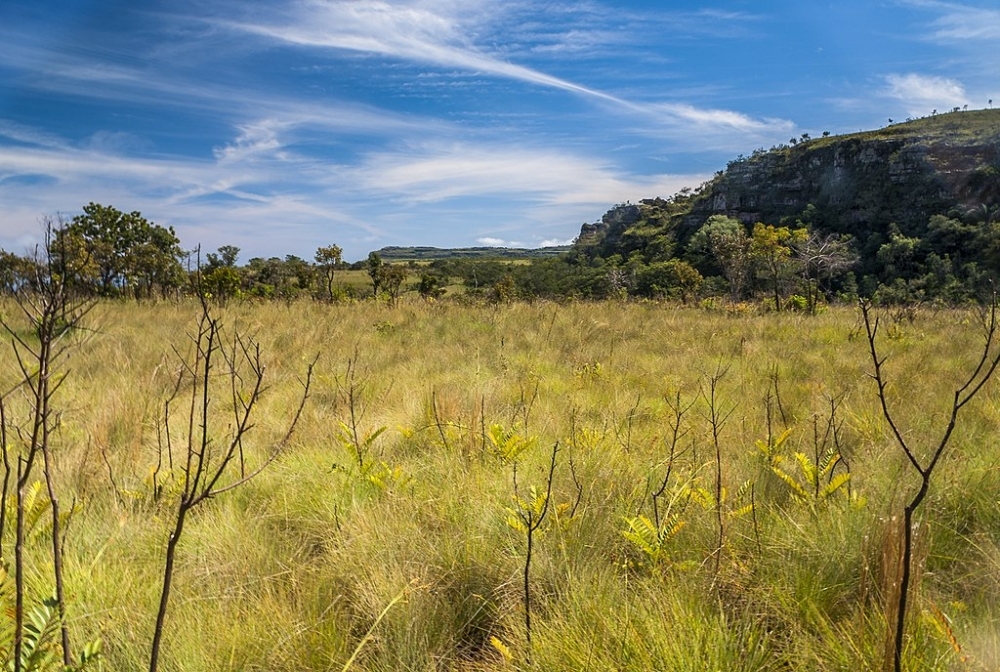
Grasslands are endangered everywhere on Earth, warns a group of researchers from several countries in Nature Reviews Earth & Environment. The solution involves restoration and the pursuit of sustainable economic development alternatives.
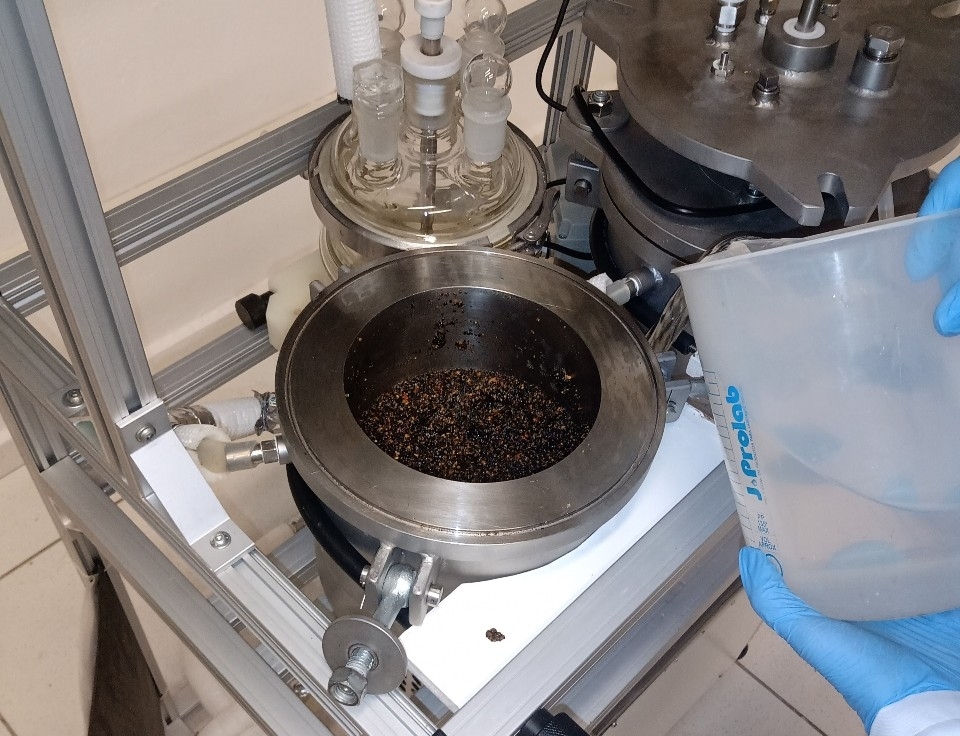
A research group at the State University of Campinas proposes treating the solid waste produced by breweries with ultrasound before submitting it to the process of digestion by microorganisms. The strategy obtains larger amounts of methane, which can be used by the brewery itself to generate electricity and heat. The final waste can be used as crop fertilizer.
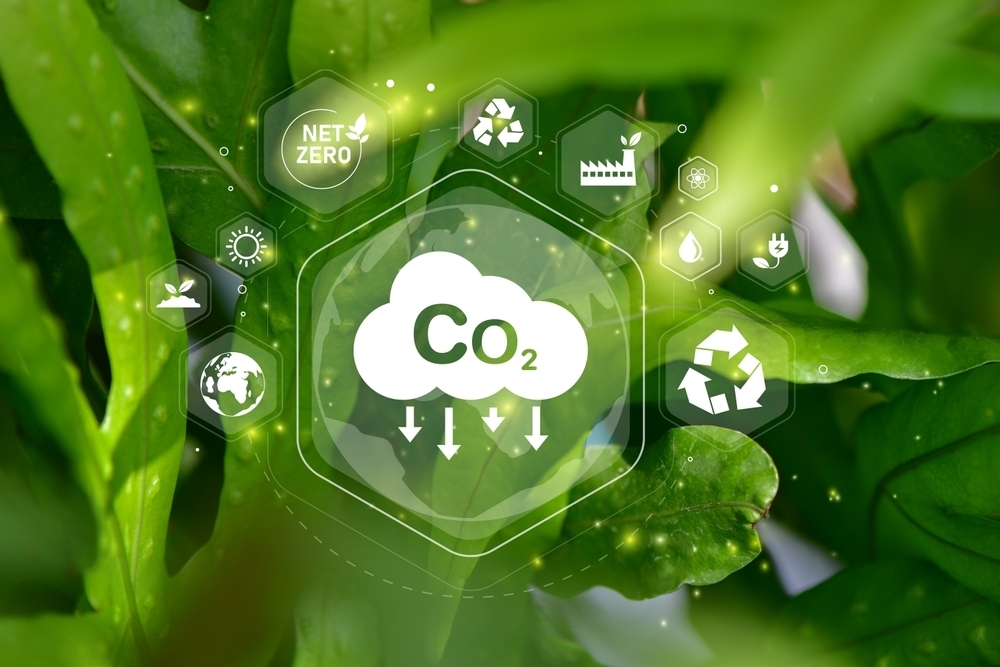
Results of studies conducted at the Research Center for Greenhouse Gas Innovation (RCGI) have fed into a bill before the Senate to set up a legal framework on carbon capture and storage as an economic activity.

In the laboratory, tadpoles of the species B. ibitiguara kept in water 3 °C warmer than the highest temperature recorded in their habitat were unable to complete metamorphosis, indicating a threat to the species from climate change.

FAPESP and 19 other research foundations will invest BRL 50 million in collaborative science projects aiming at sustainable development in the Amazon.
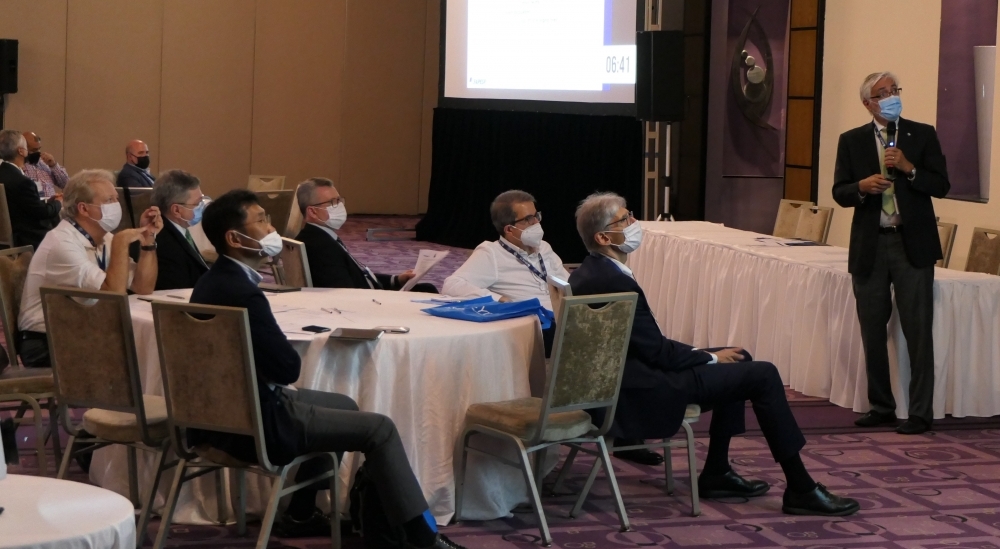
The workshop was a side event to the Annual Meeting of the Global Research Council. The need to dialogue with and learn from traditional communities, especially Indigenous peoples, was emphasized in the discussions.
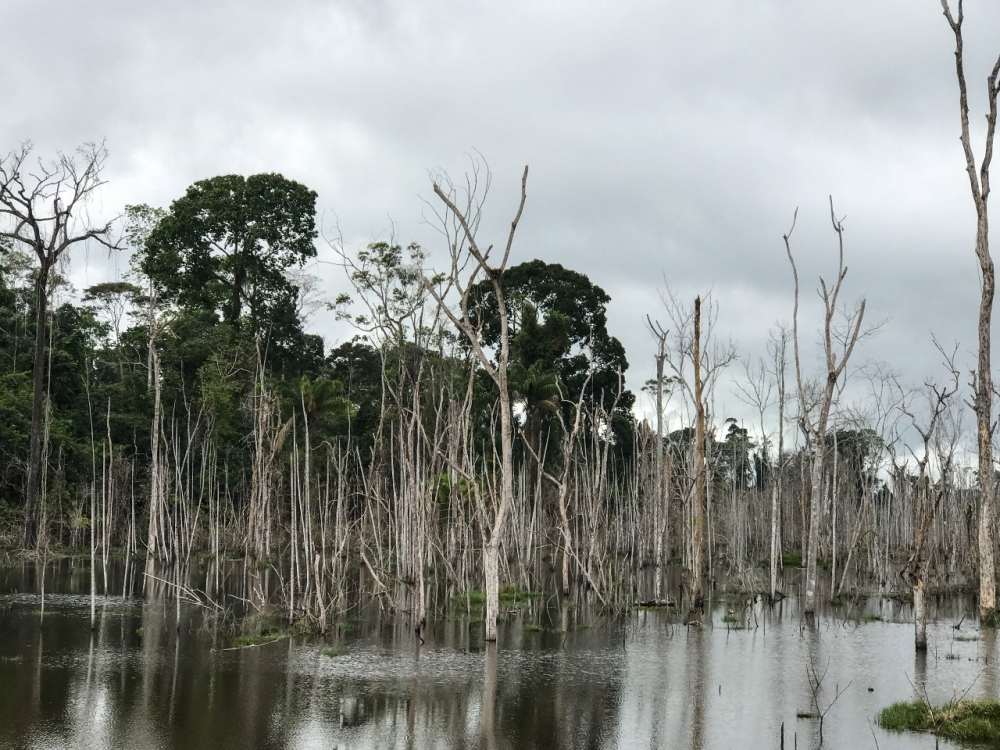
Monitoring since 2011 shows that emission levels vary significantly from one part of the complex to another, making the standards used in environmental impact assessments and the carbon credit market unreliable.
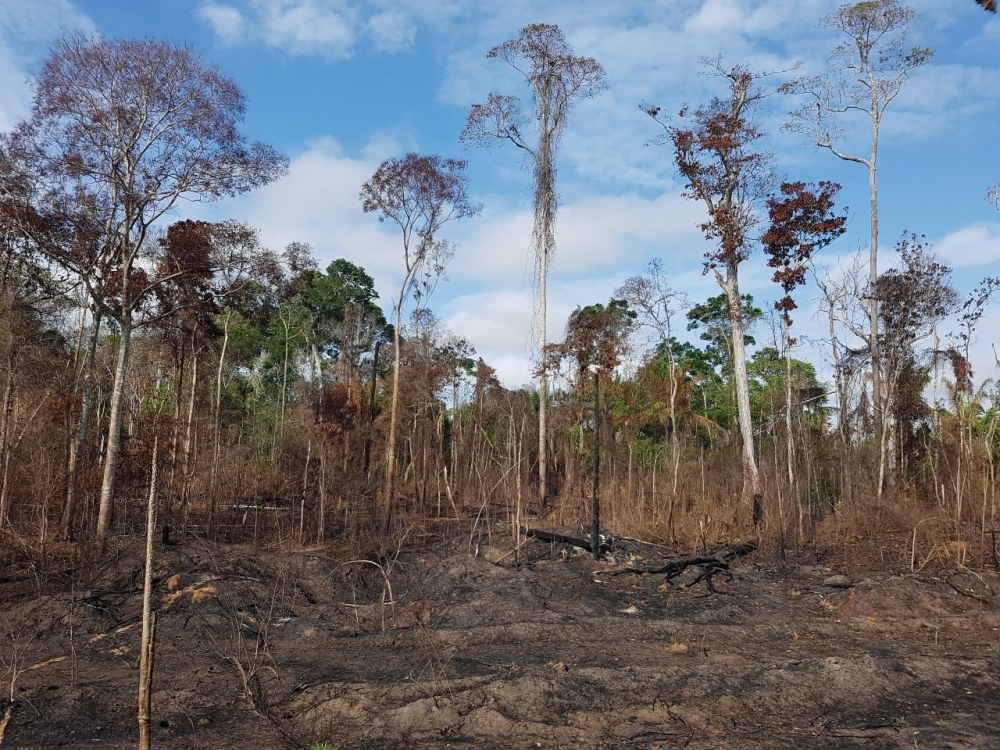
El Niño-driven extreme drought and forest fires in 2015-16 caused the loss of 3 billion trees and emissions of 495 million metric tons of carbon dioxide in the ensuing three years, destroying more than deforestation throughout the Brazilian Amazon.
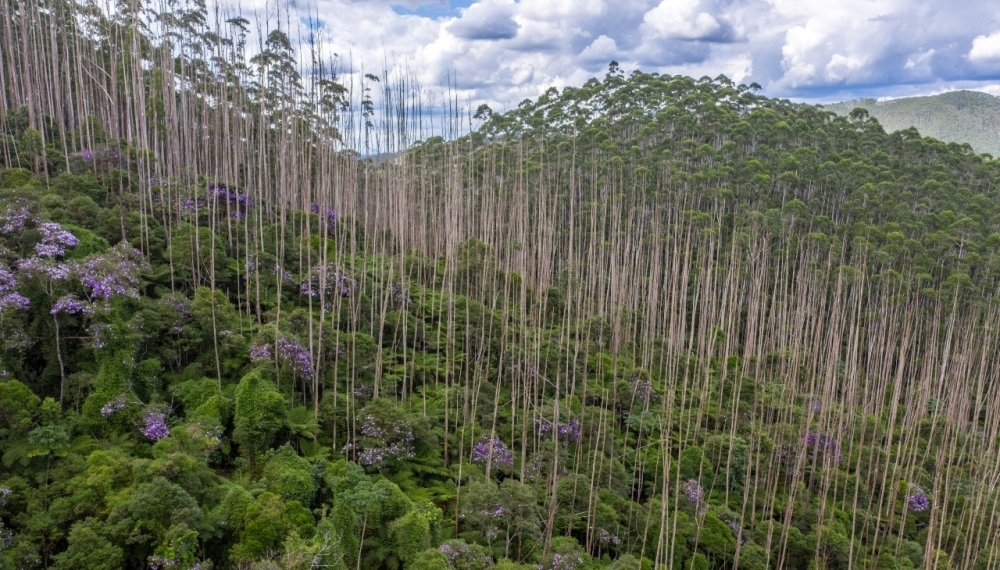
A study published in Science shows that secondary forests are more resilient than previously thought and can recover quickly, helping to mitigate the adverse effects of climate change and conserve biodiversity.
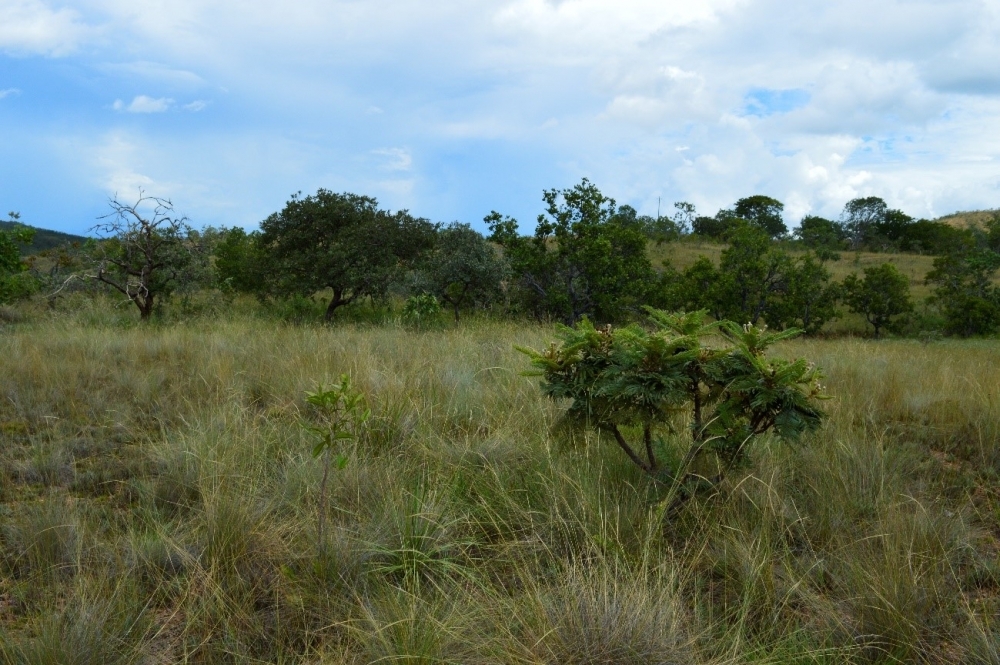
An increase in the length of the dry season led to a reduction in tree cover and expansion of savanna and grassland in the Cerrado. The ongoing climate changes may produce a similar trend in the last part of the twenty-first century.

Protecting and restoring natural ecosystems in Latin America and the Caribbean not only helps communities adapt to climate change but also benefits biodiversity and enhance food and water security, according to the participants in a webinar hosted by FAPESP.
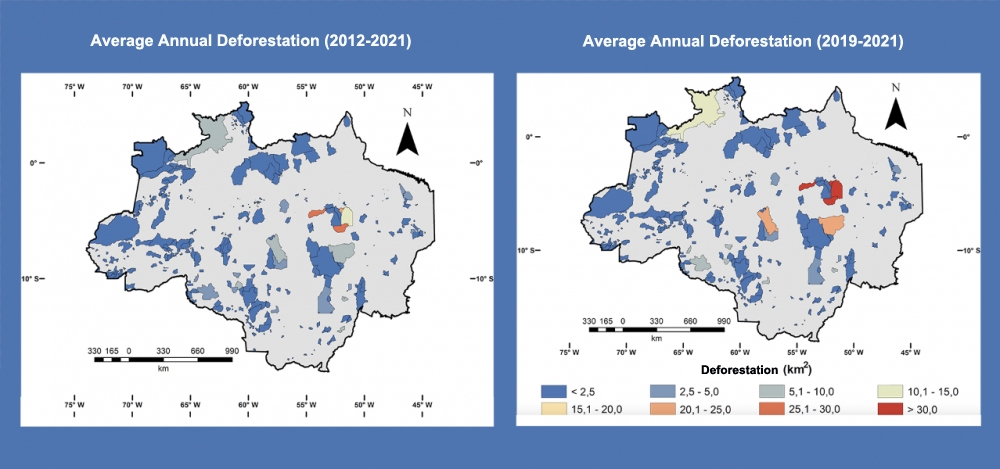
The warning comes from a letter by Brazilian researchers published in the journal Science, highlighting the “dramatic increase” in deforestation in areas of the Amazon that should act as shields against such destruction.

The point was stressed by Jean Ometto, a senior researcher at Brazil’s National Space Research Institute (INPE) and a Lead Author of the latest installment of the IPCC’s Sixth Assessment Report, during a webinar held by FAPESP. Four other Brazilian researchers who contributed to the document also took part in the event.
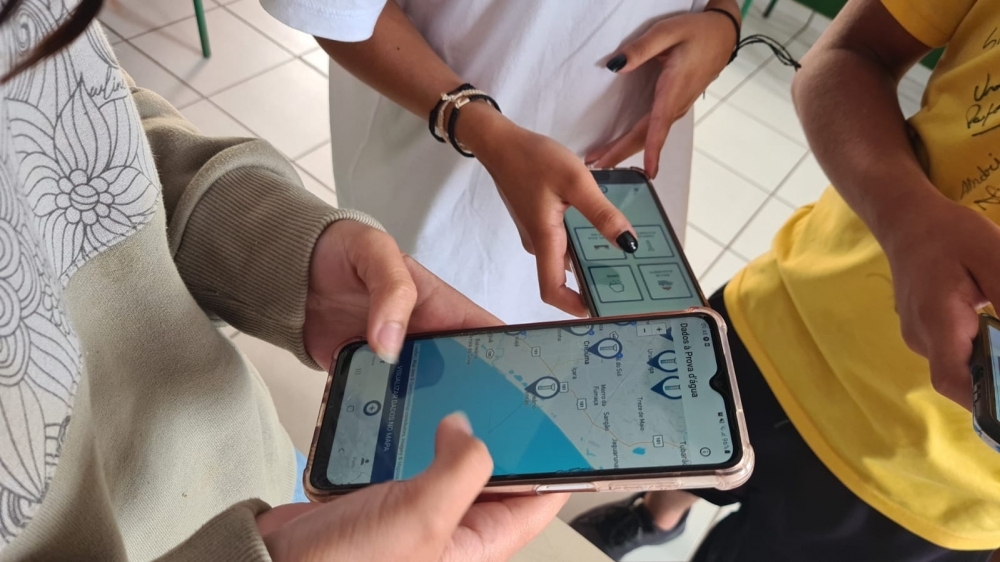
The app is one of the outcomes of an initiative by researchers in Brazil, Germany and the UK to engage local communities in generating data on flood-prone areas. The researchers are also collecting memories of past incidents.

Genetic sequencing enables scientists to identify 79 different species of coralline algae serving as a habitat for countless marine organisms on the Brazilian coast, with many yet to be explored in deep waters.
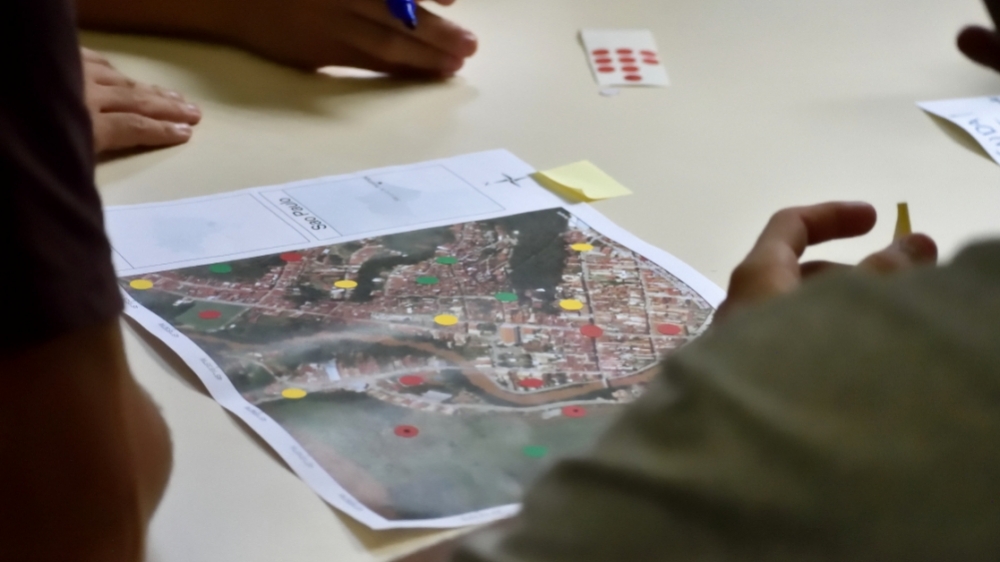
Brazilian scientists tested a participatory disaster risk monitoring strategy in a town that was partially destroyed in 2010 after an unprecedented flood. The methodology can be applied in other parts of the country.
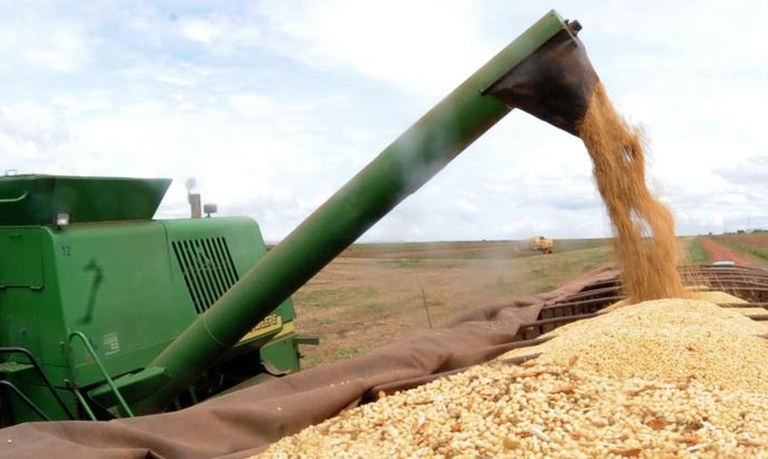
These factors combined have worsened the severe drought conditions in the transition zone between the eastern Amazon and the Brazilian savanna, where the main soybean-producing region (MaToPiBa) is located. The researchers who detected the trend warn that crop yields could fall.
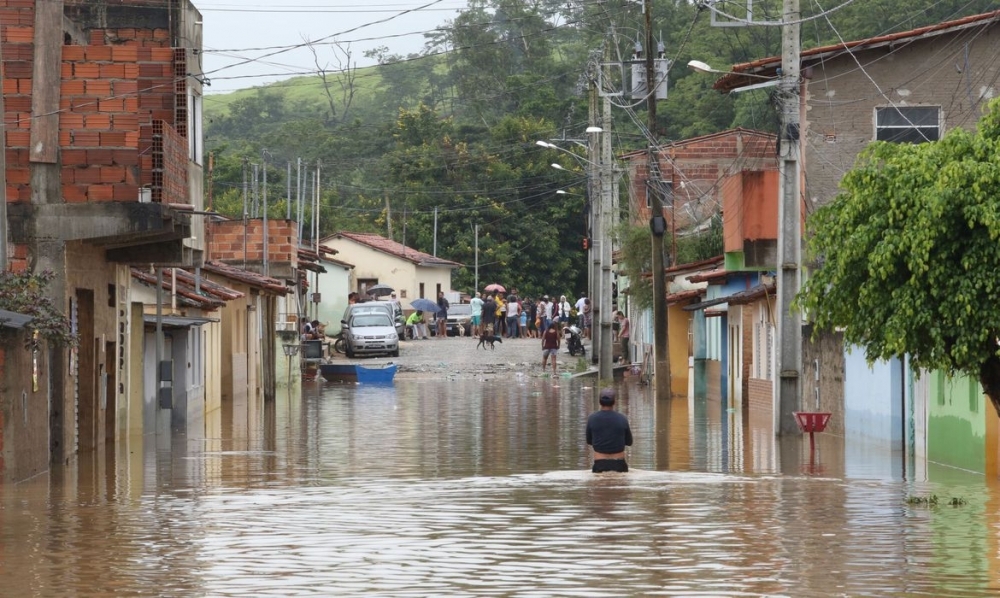
Survey by National Disaster Surveillance and Early Warning Center (CEMADEN) highlights simultaneity of extreme weather episodes due to heavy rain in North, Southeast and parts of Center-West, and drought in South and parts of Northeast.
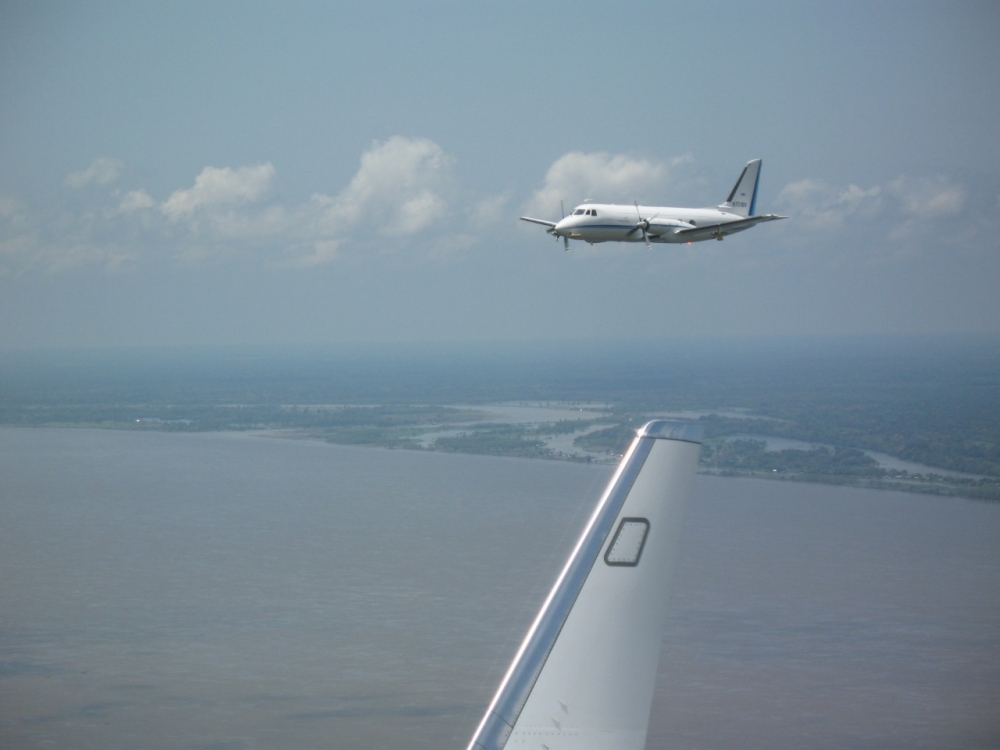
Researchers have found that nanoparticles resulting from human activities such as the burning of fossil fuels rapidly grow in the atmosphere and influence cloud formation. The discovery will help make meteorological models and climate change simulations more accurate.
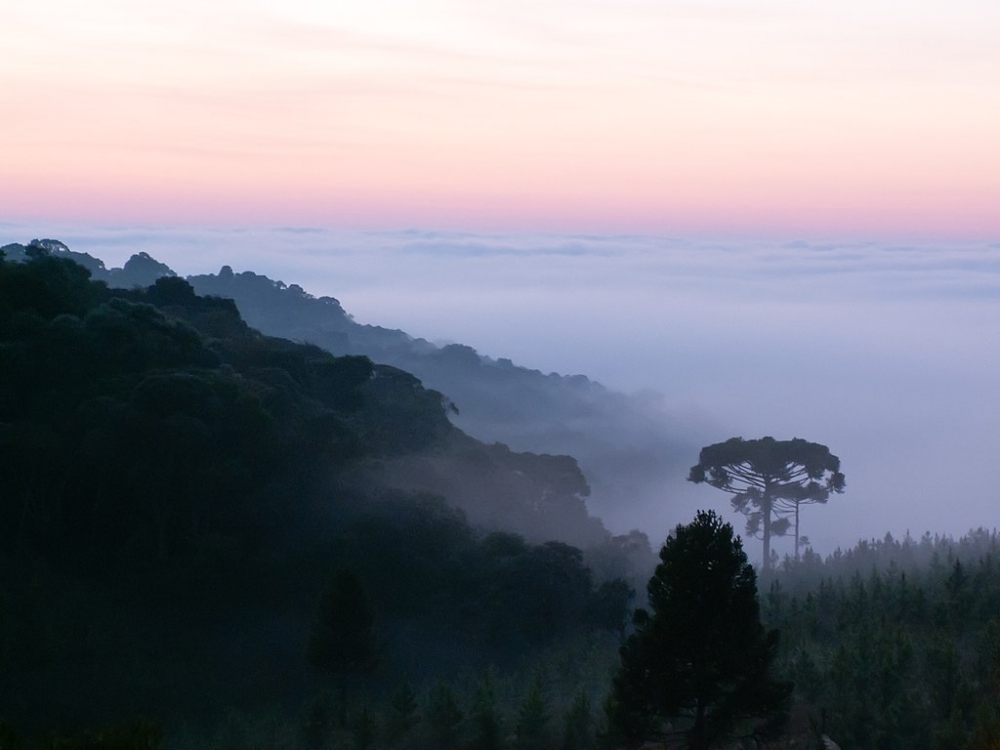
With 50 million hectares of reforestable land, Brazil can make a decisive contribution to efforts to achieve the world’s climate change mitigation targets, while earning substantial income from carbon credit trading, according to participants in a webinar hosted by BIOTA-FAPESP.

A workshop held by FAPESP and NNSFC featured scientists from China and São Paulo presenting research projects with potential for partnership.
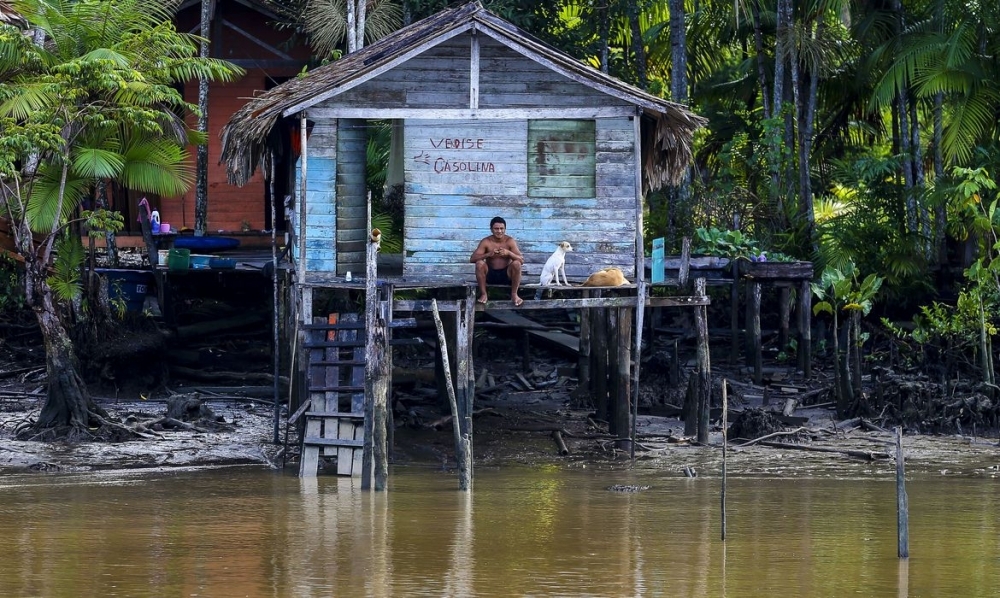
The launch was announced during COP26 at an event attended by São Paulo State Governor João Doria.
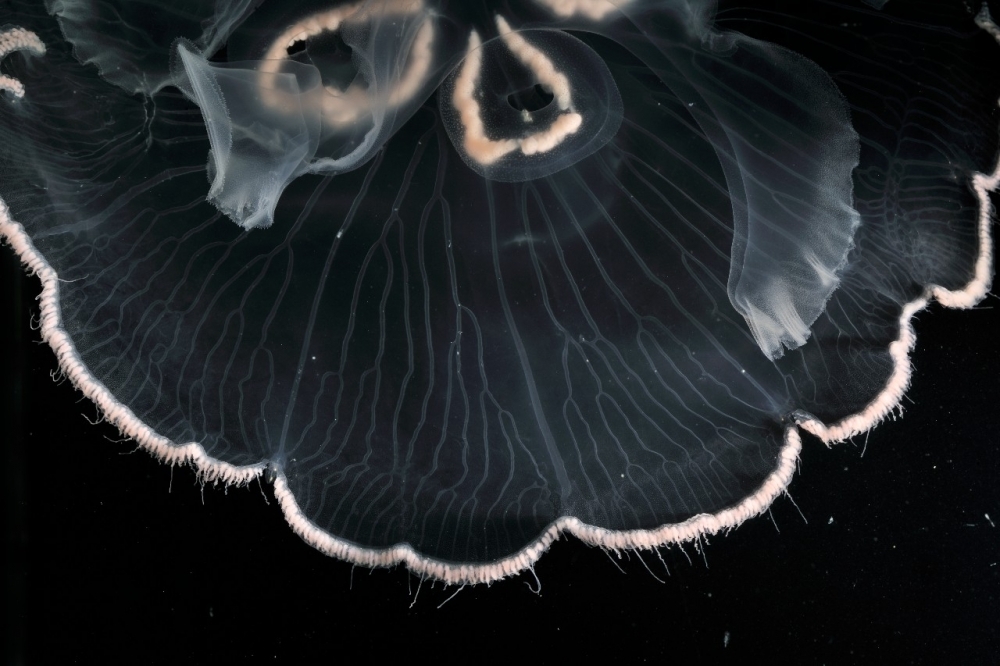
On the basis of genetic analysis of jellyfish specimens held in collections around the world, researchers have reclassified these species in the genus Aurelia, many of which are highly similar. Painstaking descriptions of species are key to conservation strategies.
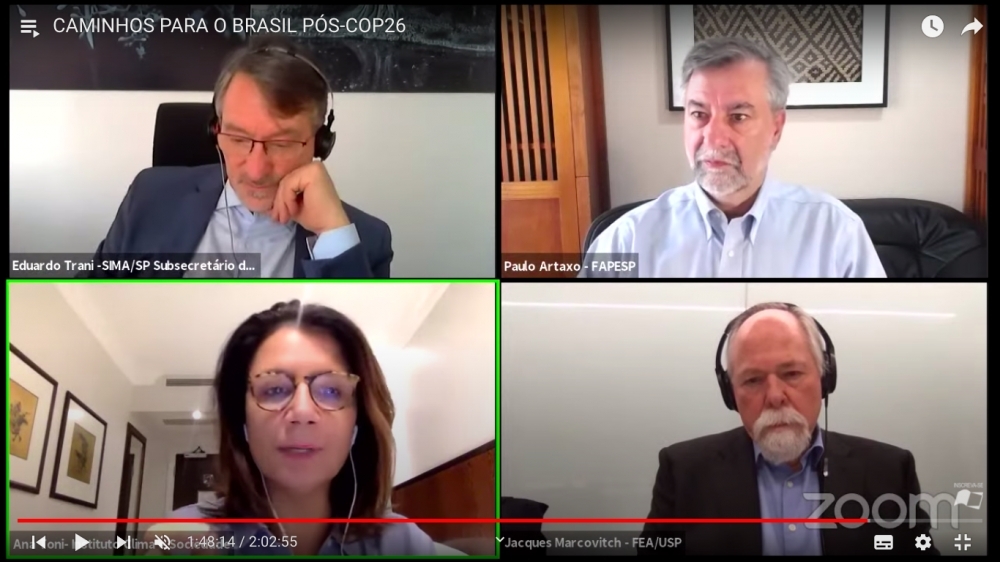
The view was expressed by experts who took part in a webinar organized by FAPESP to discuss COP26, the climate conference held in Glasgow UK on October 31-November 13.
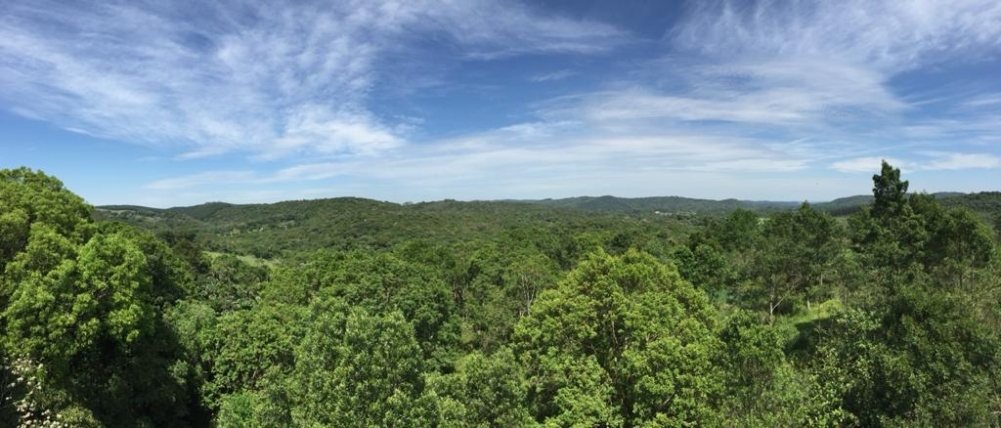
The ICMS-E mechanism, whereby states pay municipalities to conserve biodiversity and water resources, is effective but its impact decreases as the number of conservation units increases. In addition, it mainly stimulates creation of units with relatively few restrictions on land use change.